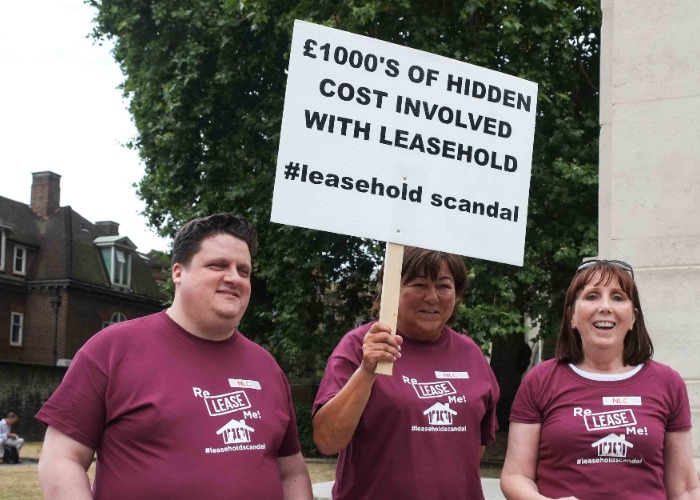Government to ban new leasehold flats in England and Wales: how the current system works, pros, cons and implications for owners

With a massive shift in the leasehold system on the cards, Katy Ward explores what this means for new and existing homeowners.
The Government has announced plans to ban the sale of new leasehold flats in England and Wales as part of a major shake-up of property laws.
Following a white paper released yesterday (3 March, 2025), housing minister Matthew Pennycook described the leasehold as a ‘feudal’ system and confirmed plans to replace it with a commonhold model.
Under the commonhold approach, individual property owners have more control over shared areas of communal buildings, including who they appoint to perform work.
Five million households affected
Scotland and other parts of the world already use the commonhold system.
The reform will affect around five million properties.
This article examines how the current leasehold system works and what the proposed change could mean.
Complete guide to selling your home
What is a leasehold?
Leaseholders buy the right to occupy a property for a set period.
This is often between 90 and 999 years, although you can typically extend the lease.
However, they do not own the building or the land it stands on.
Instead, third-party landlords, known as freeholders, own the building.
The freeholder sends a bill to residents for maintaining communal areas.
Ending the leasehold system was part of Labour’s manifesto, so the move probably shouldn’t be a huge shock.
Record increases in fees
Worryingly, service charges experienced a record increase last year, according to the property company Hamptons.
In fact, it reports that leaseholders' payments for maintenance have risen by 11% in England and Wales.
These now stand at a staggering £2,300.
Many companies responsible for fees attribute their hikes to rising energy prices and inflation.
High administrative costs
Many homeowners have also cited a lack of transparency regarding fees, which are often imposed with little or no consultation, along with high administrative costs and inflated charges.
In some cases, leaseholders must also pay ground rent – a fee for the right to occupy a property's land.
Under a commonhold model, however, property owners have a say in the building’s annual budget.
UK house price latest 2025: what’s happening to house prices near you
Flats hardest hit
While leasehold houses exist, most leasehold properties are flats and maisonettes.
You can learn more about the differences between leasehold and freehold on the MoneyHelper website.
The 12 most affordable places to buy property in the UK
Which communal areas will be most affected?
According to the Commonhold White Paper, shared areas include parts of a property that don’t belong to an individual flat.
This typically means spaces shared between flat owners.
It often includes halls, gardens and staircases.
The policy may also extend to structural parts of the building, such as external walls, pipes, roofs and cables.
Next steps
The Ministry of Housing, Communities and Local Government has said a draft Leasehold and Commonhold Reform Bill will be published later this year.
It will include details of how the reformed system will operate.
Pennycook said: “By taking decisive steps to reinvigorate commonhold and make it the default tenure, we will ensure that homeowners, not third-party landlords, own the buildings they live in and have a greater say in how their home is managed and the bills they pay.”
The potential downsides
While the Government claims to be committed to making it easier for leaseholders to convert to commonhold, complications are inevitable.
Campaigners argue that existing leaseholders need a fair way to adapt to the new way of operating.
One of the biggest challenges in converting existing leasehold properties is that freeholders – who earn income from ground rents and lease renewals – are unlikely to give up ownership without compensation.
8 reasons mortgage lenders turn you down
Have your say
Are you a leaseholder? What do you make of the Government’s plans?
Do you welcome the move to a commonhold system?
Or perhaps you’re a freeholder worried about how the changes could impact your income?
We’d love to hear your thoughts in the comments below.
Comments
Be the first to comment
Do you want to comment on this article? You need to be signed in for this feature
